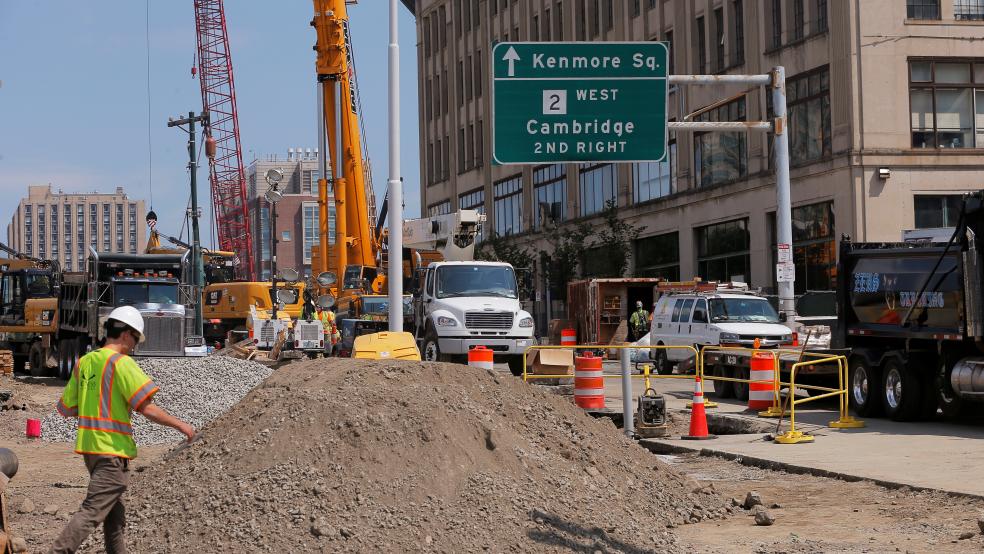In his State of the Union speech Tuesday night, Trump asked Congress to "produce a bill that generates at least $1.5 trillion for the new infrastructure investment that our country so desperately needs” — a surprisingly large amount, even if the federal portion of that investment remains $200 billion, as in previous Trump proposals that called for $1 trillion in total outlays.
“Every federal dollar should be leveraged by partnering with state and local governments and, where appropriate, tapping into private-sector investment – to permanently fix the infrastructure deficit," Trump said.
The key words are “generates” and “leveraged.” Although the details are still murky, the White House’s plan is to use roughly $200 billion in federal money to “generate” $1.5 trillion in spending overall, with the missing $1.3 trillion coming from state, local and private sources.
But there isn’t a whole lot of enthusiasm for that approach at the moment. Republicans are having trouble embracing new domestic spending at those levels. After Trump’s speech, Sen. James Lankford (R-OK) said, "$1.5 trillion, I think, kind of sucked the oxygen out of the room for a moment, as no one expected a number that big." And Democrats have their doubts about the mix of public and private funding. Sen. Richard Durbin (D-IL) said Trump’s vague plan “avoids coming up with serious funding.”
Joel Moser, who runs an infrastructure investment fund, points out at Forbes that there’s no magic formula for producing new spending, and no matter what the funding mechanism, the American people will end up paying the bill.
“The responsible debate,” Moser writes, “is who should pay, not how these funds will be raised. Should all Americans share the burden (federal taxes), all citizens in a given state (state taxes), only the users of a particular road, bridge, etc. (tolls), or some combination? The question gets complicated when you consider that making some infrastructure free or low cost serves a public good (mass transit) as does making other stuff expensive (rush hour road use).”
It’s not clear, though, that the Trump administration will be leading that debate any time soon.




